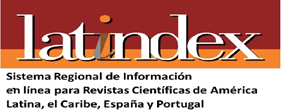FORMACIÓN DEL SUJETO MORAL Y DEL CIUDADANO EN LA ESCUELA - FORMATION OF MORAL AND CITIZEN SUBJECT AT SCHOOL
Resumen
Resumen
¿De quién es la responsabilidad de las acciones no morales de nuestros estudiantes en edad de plena formación? Sobre esta pregunta recaerá una serie de argumentos apoyados en filósofos como Hegel y Aristóteles y apreciaciones como la del concilio vaticano en 1978. Entendiendo de este modo que es preciso delimitar los procesos de formación que ayuden a los estudiantes a consolidar los valores y esquemas cognitivos, permitiendo asumir con mayor asertividad una multiplicidad de problemas. En los cuales no es una responsabilidad única del núcleo familia, sino también de la escuela; en donde debe hallarse la importancia de entender y lo que implica el acuerdo entre personas, derechos individuales, universales y principios éticos, pero nos encontramos que en ocasiones poco se reflexiona sobre ellos. En cuanto a la formación ciudadana, construcción vital de la comunidad es a través de la educación y el cumplimiento de las normas para garantizar una sana convivencia y la transformación de un hombre en ciudadano; y esa es la tarea del Estado moderno que buscan cumplirla por medio de la escuela, pero, donde no se encuentran las herramientas y los garantes suficientes para llevar a cabo este fin.
Abstract
¿Of whom is it the responsability of the moral actions of our students in age of full training? On this question there will relapse a series of arguments relied on philosophers as Hegel and Aristotle and appraisals as the Council Vaticano in 1978. Understanding thus it is necessary to delimit the processes of training that help the students to consolidate the values and cognitive schemes, allowing to asume with major assertiveness a multiplicity of problems. Where there is not only responsibility of the nuclear family, but also from school; where it should find the importance of understanding the implications of the agreement between persons, individual, universal rights and ethical principles, but we sometimes think in them. About civic education, vital community building is through education and enforcement of standards to ensure a healthy coexistence and the transformation of a man in citizen; and that is the task of the modern state seeking to fulfill it through school, but where there are sufficient tools and guarantors to accomplish this purpose.
Palabras Claves: Maestro, Estado, Sociedad, Escuela, estudiantes, familia, Educación, Formación Ciudadana, convivencia, hombre, Ética.
Descargas
Citas
ARISTÓTELES. (1930): Política. Madrid: Compañía Iberoamericana de Publicaciones.
ARISTÓTELES (2000) Ética a Nicómaco. Editorial Gredos: Madrid
CORTÉS & ALEJANDRA (2001). Hacia un modelo de comprensión del desarrollo moral desde Kohlberg y Bronfenbrenner. Un estudio comparativo e intergeneracional. PAÍS VASCO: EUSKAL HERRIKO UNIBERTSITATEA
COSTA, P., (2006). Ciudadanía. Madrid: Marcial Pons.
GILSON, É. (1965) La filosofía en la Edad Media, Gredos, Madrid.
HABERMAS, Jürgen y RAWLS, John (1998), Debate sobre el liberalismo político, Barcelona: Paidós.
HOYOS Vásquez, G. (2007): Comunicación, Educación y Ciudadanía. Documento policopiado para clase de Filosofía de la Educación. Universidad del Tolima.
JAEGER, W. (1994): Paideia: los ideales de la cultura griega. P. imprenta: México. 1ª ed
KANT, E., 1989. La Metafísica de las Costumbres. Madrid: Tecnos.
PEÑA, J. (2003). La Ciudadanía. En Arteta, A, García Guitián, E y Máiz, R (eds). Teoría Política: poder, moral, democracia. Madrid: Alianza Editorial.
PLATÓN. (1980) Protágoras. Edición bilingüe. En: Clásicos El Basilisco, Oviedo
ROUSSEAU, J.J., 1995: El Contrato Social o Principios de Derecho político. Madrid: Tecnos.
TAYLOR, Ch. (2001). El Multiculturalismo y la Política del Reconocimiento. México: Fondo de Cultura Económica.
Descargas
Publicado
Cómo citar
Número
Sección
Licencia
Si el manuscrito es aceptado para publicación los derechos de reproducción serán de la Facultad de Ciencias de la Educación, Universidad del Tolima. Ninguna publicación, nacional o extranjera, podrá reproducir ni traducir los artículos ni sus resúmenes con fines comerciales, sin previa autorización escrita del Comité Editorial de la revista Edu-Física.










